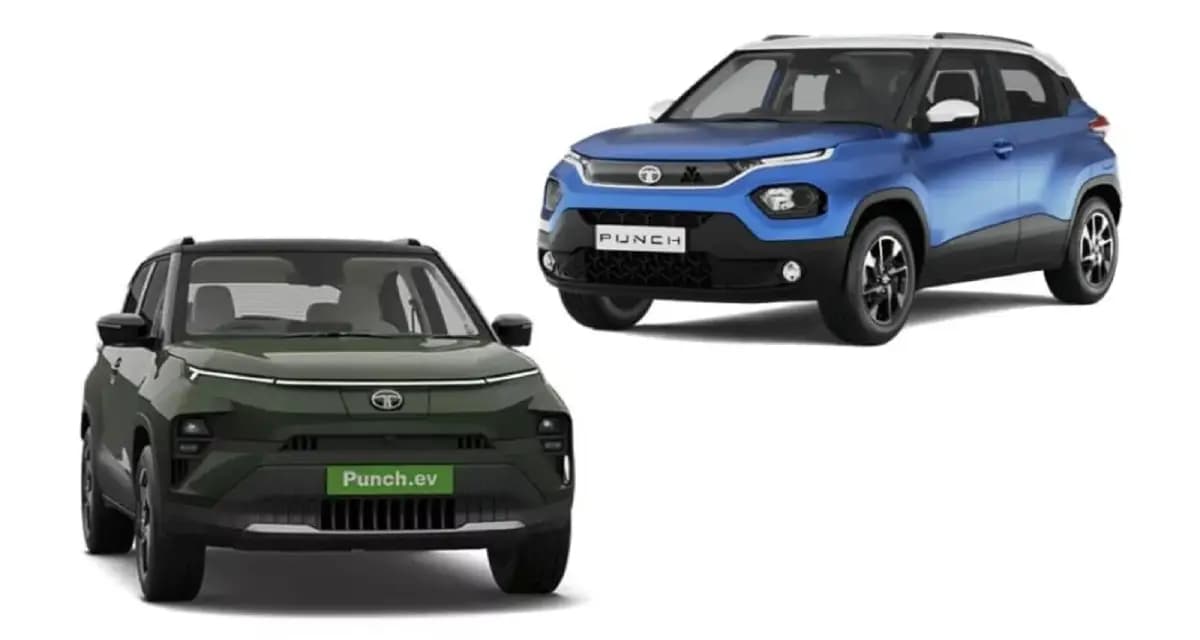Tata Motors' EV sales have taken a nosedive. The company moved a mere 4,657 electric vehicles off the lot in June 2024. This marks their weakest performance in a year and a half. The sharp drop from past years has people scratching their heads about EVs' prospects in India.
Tata EVs See Sales Slump
Tata Motors watched its EV sales plummet in June 2024. The company shipped a mere 4,133 units - the lowest since January 2023. This marks a 34% nosedive from June 2023's 7,025 units. Tata has now faced three straight months of year-on-year EV sales dips. The whole Indian EV market took a hit too. June sales fell 14% from May 2024 dropping from 123,704 to 106,081 units. But it's not all doom and gloom - June 2024 still outperformed June 2023 by 20%.
Tata’s Perspective on the Slowdown
Shailesh Chandra, who runs Tata Motors Passenger Vehicles Ltd. and Tata Passenger Electric Mobility Ltd., points to wider shifts in the market for this drop. He notes a big fall in EV orders from business buyers. The FAME-II subsidy plan set to wrap up in March 2024, played a key role. This scheme gave perks for fleet EV buys. The Xpres-T EV made just for fleets used to get a Rs 2.15 lakh boost from this plan. Now, its sales have taken a nosedive.
Fleet Market Shift
Tata Motors' EV sales took a hit from the fleet market shift. Fleet operators used to drive EV adoption but now buy fewer EVs. BluSmart, Uber, and Ola once poured money into electric cars to cut carbon and save cash. The end of FAME-II subsidies killed these perks causing fleet sales to nosedive.
Market Saturation
Fleet operators have maxed out their EV needs. They've bought enough electric cars to meet their green goals and keep things running smooth. This natural slowdown in new orders has a big impact on overall sales numbers.
New Players Shake Up Fleet Market
Fresh rivals are shaking up the fleet scene. Citroen's eC3 and BYD's E6 have snagged a big chunk of Tata Motors' old turf. Fleet operators love the eC3 giving Tata a run for its money. The E6 from BYD wins fans with its long range and solid performance.
Market Shifts Beyond Tata's Woes
Tata's not the only one feeling the heat. The whole market's in flux. Folks are warming up to hybrids and other new-fangled engines. They're crunching numbers on lifetime costs charging spots, and how far these rides can go. This push has carmakers scrambling to cook up fresh ideas and stand out from the pack.
Why EV Sales Are Dropping
Not Enough Miles: Affordable EVs from Tata - the Tiago EV, Tigor EV, Punch EV, and Nexon EV - don't go far enough. They work okay in cities but that's about it.
Quick Charging Costs a Fortune: Speedy Charging Stations Hit Wallets Hard. Plus, they can mess up batteries faster. Folks looking to save cash aren't too thrilled about that.
Charging Spots Are Scarce: You won't find many places to juice up your EV outside big cities. This freaks out people thinking of buying one - they worry about running out of power.
High Prices Compared to Petrol Cars: Buying an EV costs more than buying a petrol car making it hard for the average person to buy one.
Best as Second Cars: People often view EVs as good secondary cars instead of primary ones, which reduces their market potential.
Global Slowdown of EVs
Around the world several big car makers are rethinking their investment in EV technology because of economic worries, problems in the supply chain, and shifts in what consumers want. The first push to adopt EVs came from people who care a lot about the environment and those who like new technology. Now that this group is involved, the industry needs to attract a larger more general audience.
Tata Motors' Future Plans
Even with the current slowdown, Tata Motors aims to grow its EV lineup with soon-to-launch models like the Tata Curvv EV, Harrier EV, Sierra EV, and the top EV Avinya. The company is working on improving the performance and range of its EVs enhancing charging solutions, and providing better offers to customers.
In conclusion, even though Tata Motors encounters hurdles in the EV market, it continues its dedication to new ideas and changes to keep up with the competition. The future of EVs in India will rely on solving major issues like range, cost, and infrastructure together with regulatory support and getting customers to accept them.
Also Read:
